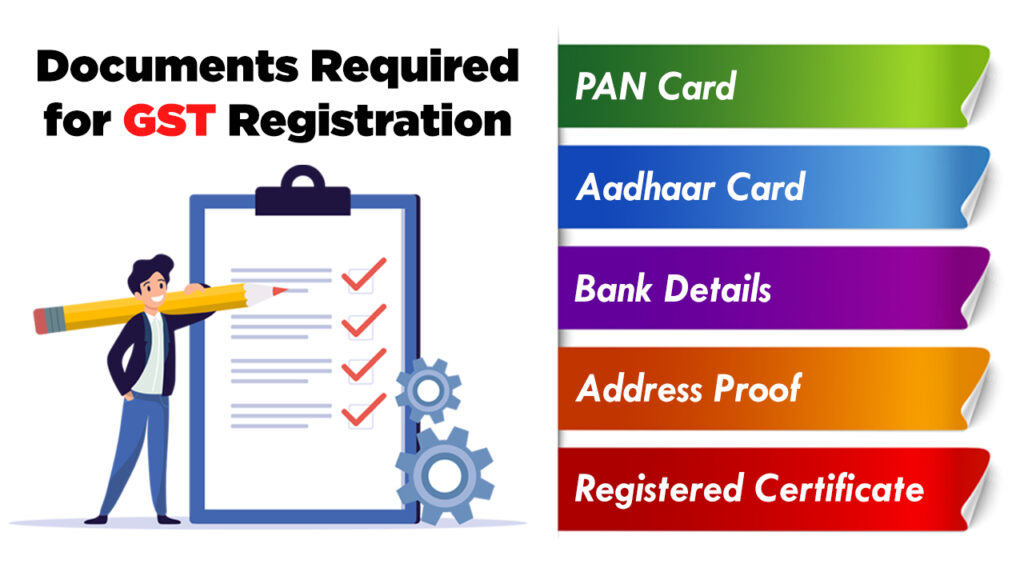Contrast and Choose the very best GST Registration Services in Singapore for Your Demands
Contrast and Choose the very best GST Registration Services in Singapore for Your Demands
Blog Article
From Beginning To End: The Ultimate Roadmap to GST Enrollment for Companies Looking For Financial Security
Navigating the intricacies of Item and Solutions Tax (GST) registration is an essential step for businesses aiming for economic stability. From recognizing the fundamental principles of GST to adhering to post-registration guidelines, the procedure can appear discouraging initially look. Damaging down the roadmap right into workable actions can simplify the enrollment trip for businesses looking to boost their monetary standing. Let's explore the important parts that compose this best roadmap and uncover how each stage contributes to laying a solid structure for financial success.
Comprehending GST Fundamentals
Digging into the fundamental concepts of Item and Services Tax Obligation (GST) is crucial for obtaining a detailed understanding of its effects on companies and the economic climate. GST is a value-added tax imposed on the majority of products and services for domestic consumption. It has changed several indirect taxes that existed in the pre-GST era, improving the tax framework and improving convenience of doing business in India. Under the GST system, both items and solutions are strained at a details rate, which is determined based upon their category. If their annual turn over exceeds the threshold limit established by the government, businesses are needed to sign up for GST. Input Tax Credit Rating (ITC) is a substantial function of GST, permitting services to declare credit report for taxes paid on inputs, lowering the general tax problem. Recognizing the basics of GST is important for businesses to adhere to tax obligation laws, manage their financial resources efficiently, and add to the nation's economic growth by joining a clear tax system.
Eligibility Criteria for Enrollment
To register for GST, businesses have to fulfill certain qualification criteria developed by the government. The primary eligibility requirement is that any kind of business associated with the supply of goods or services with an annual accumulation turnover over the threshold restriction established by the authorities must register for GST. As of the current policies, the threshold limit for GST enrollment is an annual aggregate turn over of 40 lakhs for services running within a state, with the exception of unique classification states where the limit is 20 lakhs. Furthermore, particular organizations are required to register for GST irrespective of their turn over, such as interstate vendors, casual taxed individuals, and companies reliant pay tax obligation under the reverse fee device. It is critical for services to completely examine their turnover and purchase types to establish their GST registration commitments accurately. Failing to register for GST when eligible can cause penalties and lawful consequences, making it crucial for companies to stick to the specified qualification criteria.
Records Required for Registration
Having satisfied the eligibility standards for GST registration, organizations need to now guarantee they have the requisite documents in area to proceed with the enrollment process effectively. The documents required for GST enrollment normally include evidence of business constitution, such as collaboration deed, registration certification, or consolidation certification for different kinds of companies. Additionally, services need to supply files developing the principal area of service, such as a rental agreement or electrical energy costs.
Step-by-Step Registration Refine
Commencing the GST enrollment process entails a series of structured actions to guarantee a certified and smooth registration for organizations. The primary step is to go to the Click This Link GST site and submit the enrollment kind with exact details of the company entity. Following this, the candidate obtains a Short-lived Reference Number (TRN) which is used to resume the application process if it's not finished in one go.
Following, all required documents based on the list given by the GST portal need to be submitted. These files commonly consist of evidence of organization identification, address and enrollment proofs of marketers, monetary declarations, and organization entity's PAN card.

Post-Registration Conformity Standards

Final Thought
To conclude, organizations looking for monetary stability should understand the fundamentals of GST, satisfy eligibility requirements, collect needed papers, adhere to the detailed enrollment procedure, and abide with post-registration standards - Best GST registration services in Singapore. By try this web-site adhering to these steps, businesses can ensure conformity with tax obligation laws and keep monetary stability in the future
Additionally, specific companies are needed to register for GST regardless of their turn over, such as interstate vendors, laid-back taxable individuals, and companies responsible to pay tax under the reverse cost device.Having actually satisfied the eligibility criteria for GST enrollment, services should Check This Out now guarantee they have the requisite files in location to continue with the registration procedure effectively. The documents needed for GST registration commonly include proof of organization constitution, such as collaboration action, enrollment certificate, or unification certificate for different kinds of companies. In addition, businesses need to give documents establishing the major place of service, such as a rental arrangement or electrical power costs.Commencing the GST registration process includes a collection of organized steps to make sure a compliant and smooth enrollment for businesses.
Report this page